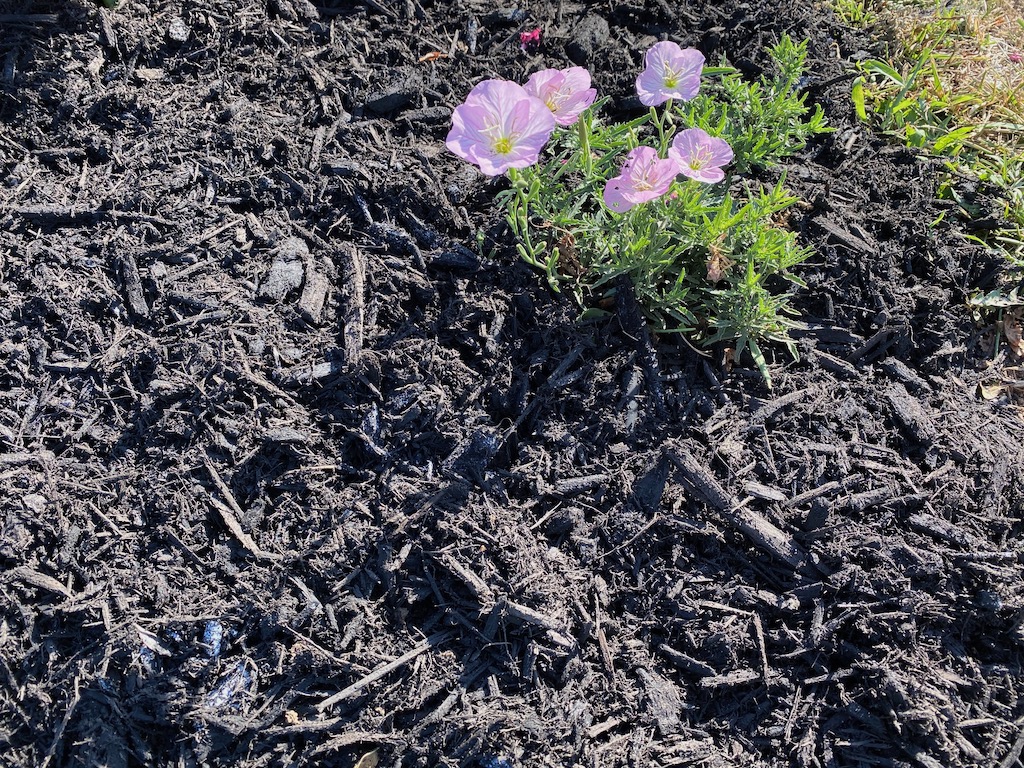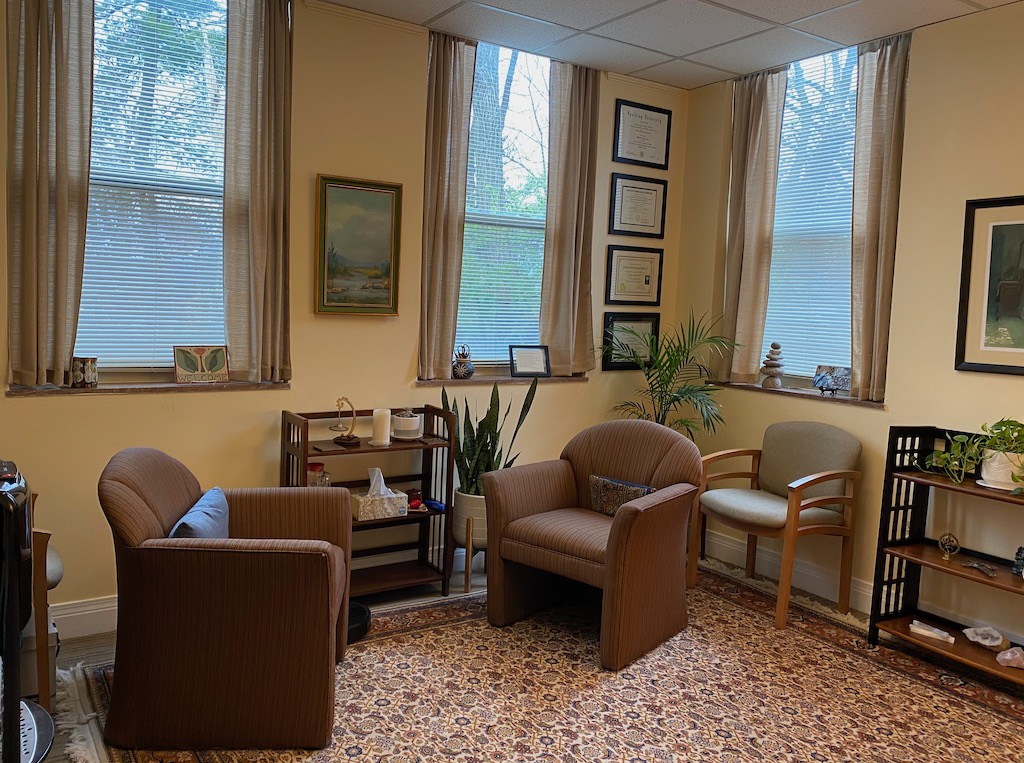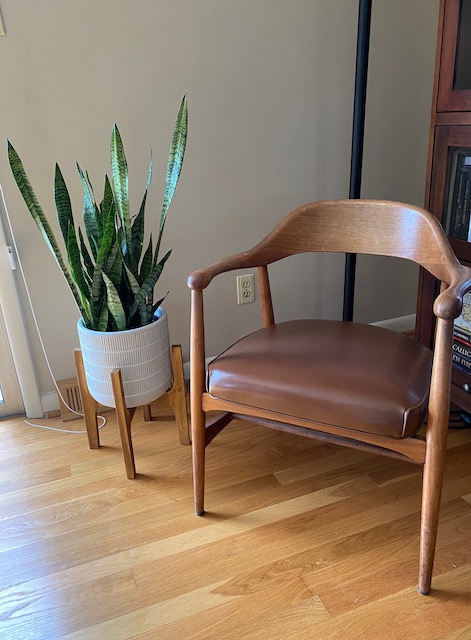Lately I’ve been weeding and mulching according to the sun, working when I can have shade in the heat of the summer. By 8:30 my time’s up, and even that is pushing it. Afterwards it feels good to sit on the porch and cool off, enjoying the improving landscape as the sun lights up the yard.

When I dug out a shrub from the front yard earlier this summer, I didn’t do anything beyond smoothing the dirt to reclaim the space it left. I pulled a few weeds then looked away for a moment. Suddenly the opportunistic crabgrass had not only taken over but grew in a mound threatening to replicate the size of the bush that had been there before. Among the spreading fingers a small cranesbill geranium with pale pink flowers bloomed—who knew you were there? But the voracious weeds nearly choked it out.
Nature abhors a vacuum they say. Physicists seem to be saying there are no vacuums, really. Everything exists in a field that connects everything. But our senses recognize that creating a space invites something to fill it.
Putting things in order, clearing space, is enormously satisfying. It brings peace. Then immediately the world presses in. So we need rituals and routines for holding that space, for preventing the opportunistic weeds from taking over and choking out what would bloom there.
It was a lot of work to pull out the crabgrass and other weeds that took over that fertile patch of soil. The job would have been easier if I had jumped on it sooner, but it’s done now. I worked carefully to keep the volunteer geranium intact while I extracted the weeds from around it. This time I covered the bare ground with a layer of mulch to help keep the weeds down. I need that help to hold the space until I get other things to grow there.
Whether it’s in a garden, or on a tabletop, or between the lines of a day planner, holding space can feel unproductive. It’s the antithesis of having an agenda. And yet holding space is about the healthiest intention we can have.
It’s interesting to consider the difference between an “agenda” and an “intention.” Agenda is a kind of willfulness, the imposition of not only what, but how and when. An intention is more expansive. It names a value and leaves open how to achieve it. It’s the yutori of consciousness (yutori being a Japanese word meaning “a space of sufficiency and ease”). There are times when the focus and direction of an agenda is needed—it enabled me to do the work of clearing the weeds. At other times, intention is needed to allow room to breathe and for new life to grow. While an agenda tries to avoid surprise, intention makes space for the unexpected and creates the possibility of delight on the way to where we want to go. Intention holds things lightly.
Creating and maintaining space in our lives claims the fertile ground of our heart and soul. Staying with our creative and contemplative practices protects us from encroachments that rob us of what we need to be fully alive. We don’t have to let ourselves be overrun by crabgrass, whether it takes the form of negative thoughts from within or impositions from without.
At a time when the news feels more oppressive week by week, fear and despair (or the anger and hate that disguise them) are the weeds that can take us over if we allow it. Our lives individually and collectively are too important to allow that to happen.
We have the ability to love one another and to bring love’s healing to the world. We need space in our lives and our hearts to do that work. The gentle intention of holding space is important right now. Holding and tending our heart space, being watchful for weeds and removing them promptly, will allow beauty and healing to bloom in our hearts, our lives, and our world.


